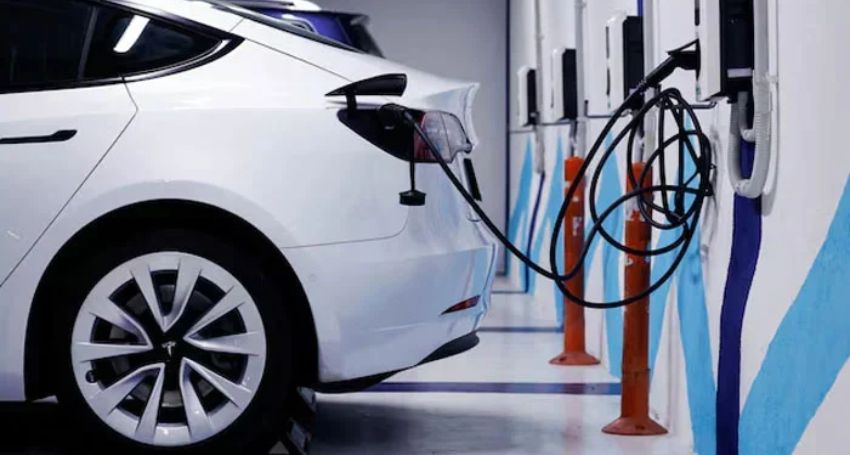
Electric vehicles (EVs) are revolutionizing the automotive industry, not only with their cutting-edge technology but also with their profound environmental benefits. This article explores why electric vehicles are better for the environment than traditional gasoline-powered cars. We’ll dive deep into the environmental benefits of EVs, discuss their impact on emissions, and explain how electric cars contribute to sustainability and a better future. Whether you’re shopping for a new car or just curious about the impact of EVs, this guide is worth your time.
What Makes Electric Vehicles Better for the Environment?
All-electric vehicles are better for the environment for several reasons. First, EVs have zero tailpipe emissions meaning they do not release harmful pollutants directly into the air as conventional vehicles like gasoline vehicles do. This results in significantly fewer pollutants contributing to air pollution, which is a major issue in urban areas. Hybrid vehicles, while still relying partially on gasoline, also offer reduced emissions compared to traditional gasoline-powered cars, especially in city driving conditions.
Secondly, the transition from gasoline-powered cars to EVs reduces our dependence on fossil fuels, including natural gas. As the electric grid gets cleaner, the overall environmental benefits of EVs increase, making them an even better choice for a sustainable future. Lastly, EVs are more energy-efficient than their gasoline counterparts, meaning they require less energy to operate, further enhancing their positive impact on the environment.

How Do Electric Vehicles Reduce Greenhouse Gas Emissions?
One of the primary benefits of EVs is their ability to reduce greenhouse gas emissions. Traditional vehicles rely on burning fossil fuels, which releases significant amounts of carbon dioxide (CO2) and other greenhouse gases into the atmosphere. In contrast, electric vehicles do not produce tailpipe emissions. The emissions associated with EVs come from the electricity used to charge them, and as the electric grid incorporates more renewable energy, these emissions decrease even further.
Additionally, EVs and hybrids contribute to lowering the greenhouse gas emissions associated with the transportation sector, which is one of the largest sources of CO2 emissions worldwide. By reducing the number of gasoline-powered vehicles on the road, EVs play a crucial role in combating climate change.

The Role of Batteries in Electric Vehicles
The battery is a critical component of an electric vehicle, providing the power needed to drive the car. Most EVs use lithium-ion batteries, which are known for their high energy density and long lifespan. However, producing these batteries can generate emissions, particularly during the extraction of raw materials like lithium, cobalt, and nickel.
Despite these challenges, the environmental benefits of Electric Vehicles outweigh the emissions produced during battery manufacturing. Advances in battery recycling and the development of more environmentally friendly battery technologies, such as solid-state batteries, are helping to further reduce the emissions associated with electric vehicle batteries.
Electricity Used to Charge EVs
The electricity used to charge EVs is a crucial factor in determining their overall environmental impact. The emissions from EVs depend on the energy sources used to generate the electricity that powers them. In regions where the electric grid relies heavily on fossil fuels, the emissions from charging an EV may be higher. However, as the grid shifts toward more renewable energy, the emissions from charging EVs decrease.
It’s also important to note that EVs are more efficient than gasoline vehicles. This means that even when powered by electricity from fossil fuel sources, EVs generally produce fewer emissions than their gasoline counterparts.

The Impact of Public Charging Infrastructure on EV Adoption
The availability of public charging stations is vital for the widespread adoption of electric vehicles. A well-developed charging infrastructure makes it easier for drivers to recharge their EVs, reducing range anxiety and encouraging more people to switch to electric vehicles. This, in turn, helps to amplify the environmental benefits of Electric Vehicles by increasing the number of electric vehicles on the road.
Moreover, the expansion of public charging networks is helping to integrate renewable energy sources into the electric grid. For instance, some charging stations are powered by solar panels or wind turbines, which further reduces the emissions associated with charging EVs.
How Does Battery Recycling Enhance the Environmental Benefits of EVs?
Recycling EV batteries is an essential aspect of minimizing the environmental impact of electric vehicles. The process of recycling EV batteries can reduce the need for new materials, such as lithium and cobalt, which are often extracted through environmentally harmful methods. By recycling, we can lower the emissions generated during battery production and decrease the demand for raw materials.
Additionally, recycling EV batteries helps to prevent hazardous materials from ending up in landfills, further enhancing the environmental benefits of Electric Vehicles. As the technology for recycling improves, the impact of EVs on the environment will continue to decrease, making electric cars an even more sustainable choice.
Why EVs Have Zero Tailpipe Emissions and Why It Matters
One of the most significant advantages of electric vehicles is that they produce zero tailpipe emissions. This means that EVs do not emit pollutants like carbon dioxide, nitrogen oxides, or particulate matter, which are common in gasoline-powered vehicles. Zero tailpipe emissions are especially important in urban areas, where air pollution is a major health concern.
By eliminating tailpipe emissions, electric vehicles contribute to cleaner air and a healthier environment. This is one of the key reasons electric cars are better for both the environment and public health compared to conventional cars.
Comparing EVs and Gasoline Vehicles
When comparing EVs and gasoline vehicles, it’s clear that electric vehicles are much better for the environment. EVs produce fewer emissions over their lifetime than gasoline-powered cars, even when considering the emissions generated during battery production. Gasoline vehicles emit large amounts of carbon dioxide and other pollutants that contribute to climate change and degrade air quality.
On the other hand, EVs have the potential to be powered entirely by renewable sources of electricity, further reducing their emissions. As the electric grid gets cleaner, the environmental benefits of Electric Vehicles will only increase, making them the superior choice for reducing the impact of vehicles on the climate.

The Role of Renewable Energy in Powering Electric Vehicles
The integration of renewable energy into the electric grid is crucial for maximizing the environmental benefits of Electric Vehicles. As more electricity is generated from renewable sources like wind, solar, and hydropower, the emissions from charging EVs will decrease. This will make electric vehicles even more environmentally friendly and further reduce their impact on the environment.
Governments and utilities around the world are investing in renewable energy infrastructure to support the growing number of EVs on the road. As these investments continue, the environmental benefits of electric vehicles will become even more significant.
What the Future Holds for Electric Vehicles and Environmental Sustainability
The future of electric vehicles looks promising, with continued advancements in battery technology, recycling, and renewable energy integration. As the adoption of EVs grows, we can expect to see a significant reduction in greenhouse gas emissions, improved air quality, and decreased reliance on fossil fuels.
In the coming years, electric vehicles will likely become the norm rather than the exception, leading to a more environmentally friendly and sustainable transportation system. The environmental benefits of electric vehicles will continue to grow as technology evolves and more people make the switch to EVs.
Conclusion
Switching to an electric vehicle is more than just a personal choice—it’s a commitment to protecting our planet for future generations. By understanding the profound environmental benefits of Electric Vehicles and embracing this technology, we can all contribute to a healthier, more sustainable world. Whether you’re shopping for a new car or simply exploring the future of transportation, EVs offer a compelling, environmentally friendly solution that is set to shape the future of mobility.
Start your journey toward a cleaner, greener planet today!



